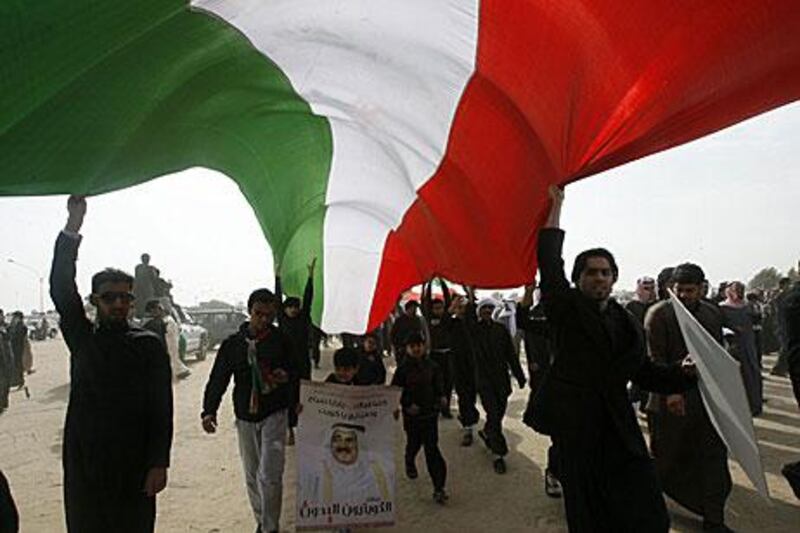KUWAIT CITY // Kuwait will not allow stateless people to stage any more demonstrations after having promised to resolve their demands for citizenship.
"The ministry will not allow any processions, gatherings or demonstrations (by stateless), regardless of their nature or aims," the interior ministry said yesterday.
It described stateless people as illegal residents, the official term Kuwait uses to identify more than 105,000 stateless people demanding citizenship and other basic rights.
They plan to gather on Friday as they have been doing since December 16.
Stateless people demonstrated last February and March and then revived their protests last month demanding a fair solution to their plight.
At the outset, riot police used force to disperse the protesters and arrested more than 30 of them but later allowed them to demonstrate peacefully.
The interior minister, Sheikh Ahmad Al Humoud Al Sabah, said on Sunday that Kuwait would start naturalising some of the stateless people, locally known as "bidoons", by the end of the month or early next month.
The minister gave no details as to the number of bidoons who will receive citizenship.
Saleh Al Fadhalah, who heads the government's central agency for illegal residents that deals with the stateless, said last month that 34,000 stateless people could qualify for citizenship.
Kuwait has long alleged that bidoons or their ancestors destroyed their original passports to claim the right to Kuwaiti citizenship to gain access to the services and benefits provided to nationals.
In a bid to force the bidoons to produce original nationality papers, Kuwait has refused to issue essential documents to most of them, including birth, marriage and death certificates, Human Rights Watch said in June.





